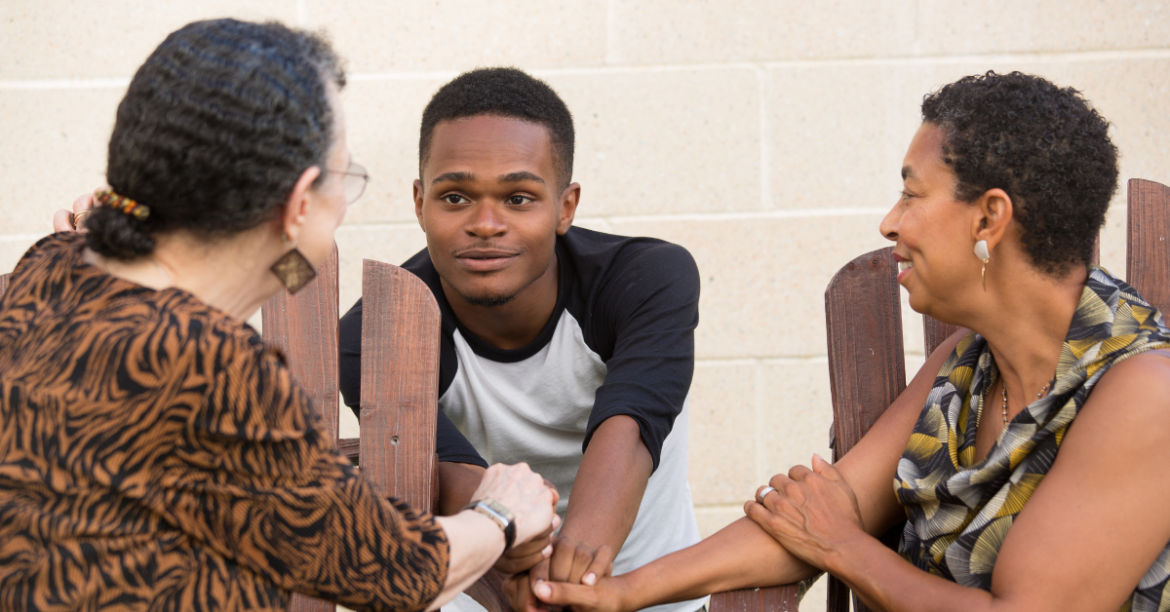
Hospice of the Chesapeake Director of Nursing and Clinical Advocacy Rachel Sherman, DNP, FNP-BC
I talked with my grandmother all the time. We were very close, so even when I was going to school eight hours away from home I still talked with her often on the phone. While I was away, she got cancer. Soon, I noticed our conversations were different. So, I got on a Greyhound bus to drive home. When I got there, I found her in a hospital bed in her living room. There was a hospice nurse and a social worker there. My family had kept things from me to protect me. But it had done the opposite. Seeing my grandmother so sick and so weak was so upsetting.
It was the hospice nurse and the social worker who sat and talked with me about what was happening with my grandmother. I was 16. That was my first exposure to hospice and palliative care. I already knew I wanted to be a nurse and a caregiver, but it was in that moment that hospice professionals supported me. I decided that I would want to give that kind of support to others.
Every year around the anniversary of her death, our family gets together. She had a thing for elephants, so we always pull out her little trinkets. This year, I opened the box and I found in it a Hospice of the Chesapeake folder. It noted that Avis Queen was her intake coordinator.
That was 20 years ago. Avis is now my colleague – the referral and admissions manager for our palliative care service, Chesapeake Supportive Care. That courageous conversation a nurse and social worker had with my 16-year-old self would spawn hundreds of courageous conversations I have had with patients, families and the community. It has come full circle.
A human experience
When I’m having courageous conversations as a medical professional, I figuratively take off the white coat and scrubs, because death and dying is not a medical event for most people. It is a human experience. You must have courage to share bad or devastating information without hiding behind medical jargon.
When I’m having courageous conversations in the community, I literally take off my white coat and scrubs. Especially in churches, where it’s a sacred space to talk about transitioning to end of life. You need to know the community that you’re walking into. You need to do some research and learn about the culture you’re walking into.
Courageous conversations are not all doom and gloom. They are a gift to your family to help them prepare for the time that you will no longer be here. Research shows families whose loved ones had advanced directives and conversations before they transitioned experience less anxiety, less depression and less of a burden at the end of life.
A gift to families
There are some cultures where people feel like suffering brings them closer to God. Or, it’s a punishment for something they’ve done. Or talking about death and dying is going to make it happen. And so we may not even talk about death and dying. Instead, we talk about life rituals or how your family and community cares for one another. Knowing my audience, understanding their priorities and respecting their beliefs equips me to ask how I can best help them in their life journey.
Courageous conversations are not all doom and gloom. They are a gift to your family to help them prepare for the time that you will no longer be here. Research shows families whose loved ones had advanced directives and conversations before they transitioned experience less anxiety, less depression and less of a burden at the end of life.
‘Don’t worry, Daddy’
I have courageous conversations often because I’m a hospice and palliative care nurse practitioner. But they are seldom easy – that is why we call them courageous. Recently, I had a patient who had advanced stage breast cancer who ended up contracting COVID. All the signs were there that she was most likely not going to make it through the day. Any piece of machinery that could have been in that room was in the room. I was there to help plan her end-of-life care with her husband. He was devastated. It was her birthday. They have seven children. And I was there to ask what he would think his wife would want.
What came from our conversation was that he needed less support from the medical team and more support from his family to say it was OK to help his wife transition. It was one of the younger children who said, “Don’t worry, Daddy, I’ll be here to support you.”

I said before that death and dying is a human experience. Well, that conversation took a lot of courage for me because this mother was the same age as my mom when she passed. Her children were close to my children’s ages. I had to recognize in that moment that it was not about what I or the family wanted. It was about what this mother, wife and daughter would want. I had to encourage her husband to be her voice.
Uncomfortable, unexpected, but necessary
There were a lot of courageous conversations that day. It took a lot of courage for the hospital internist to go down that hallway to tell the family of this bad news. The family had to have the courage to make the decision that they thought this woman would want, to honor her wishes and not give in to what they wanted. It took a lot of courage for that child to say, “I’ll be here for you Daddy.”
A courageous conversation can be uncomfortable, unexpected and unwanted. But it is necessary. Talking about life-limiting illness and death before it happens means accepting that this could happen to you or someone dear to you. But once you have these conversations, the door is open to preparing for every milestone in your life. Not just education, marriage, children and career, but the final milestone of your death.


